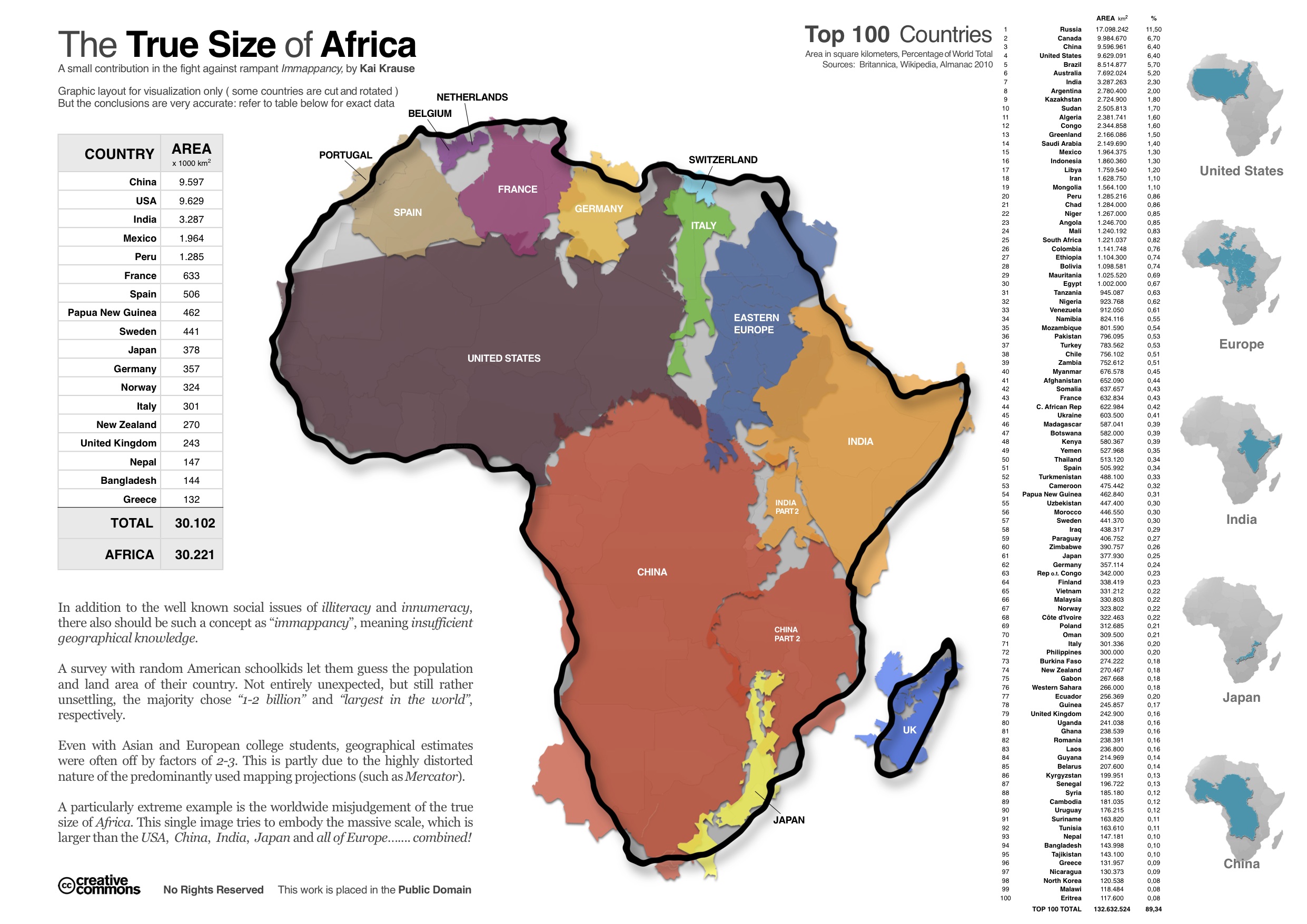By: Aashka Dave

The continental United States, China, India, Japan, and the majority of Europe can comfortably fit inside Africa’s land mass. Approximately 1.033 billion people call Africa home, making it the second largest continental population on Earth.
Yet, Western media coverage of Africa falls far behind the typical expectations for a continent of this size.
Take the recent bombings in Nairobi, Kenya. ABC News’ first story about the September 21 bombings was written by journalist Jeffrey Koman, who was based in Johannesburg. The media industry, struggling to transition to a more digital world, has suffered economic difficulties in the past few years. Consequently, coverage becomes more like Koman’s: he uses Associated Press (AP) reporting to flesh out his story, and files it from a different country entirely. As Koman’s situation illustrates, fewer journalists are on the ground to cover stories about Africa simply because the funds to support them no longer exist.
In a 2010 article for the International Communication Gazette, author Suzanne Franks discusses the decrease in African media coverage from the colonial era to the present. According to Franks, media coverage has decreased because the vested interest Western countries once had in colonial African economies no longer existed.
This decrease in interest, coupled with the economic woes of the media industry, has led many news providers to draw out of African coverage. International bureaus are being cut worldwide, and the bureaus that are left have smaller staffs. Jennifer Lawson, a former executive vice president at PBS, cited the media industry’s efforts to cut down on costs as the reason international news bureaus are becoming a scarcity. “You name it,” she says. “It would probably be a shorter list to name the [African] countries that are covered.”
Due to the economic problems of the media industry, African news coverage is also suffering from what Franks calls “parachute journalism.” Journalists come in from Western countries when newsworthy events take place due to the shortage of African-based bureaus, and as a result of their limited knowledge base about the problems at hand, and the intense amount of deadline pressure they face, their coverage becomes a discussion of “recurring cliches and stereotypes.”
This run-of-the-mill style reporting fueled by parachute journalism has, in turn, created a misperception of African countries and cultures in Western society. The 2005 article “How to Write About Africa,” mocks all forms of Western coverage of the continent by saying that every story is written in a mold tailored to best attract readers who have a set perception of Africa— a perception that is fueled by the media. The author Binyavanga Wainaina’s frustration is particularly evident at the beginning of the article:
“Never have a picture of a well-adjusted African on the cover of your book, or in it, unless that African has won the Nobel Prize. An AK-47, prominent ribs, naked breasts: use these. If you must include an African, make sure you get one in Masai or Zulu or Dogon dress.”
Western media’s perception of Africa’s newsworthiness, economic troubles in the media industry, and typically thematic stories of the continent have combined to leave Africa a misrepresented, poorly covered continent. The news stories being created are simply not up to muster.
It is not accurate to dismiss news coverage of an entire continent by presuming it carries less economic weight than in the past. With a growing population, African economic growth is set to “outpace the global average over the next three years,” according to the World Bank. If anything, African economies are going to have a significant positive impact on the global economy.
Perhaps the most effective solution to Africa’s lack of news coverage then, is also the simplest to enact: write more stories about Africa. Make the issues of the continent known, and write them in a way that does not lump together entire cultures.
According to the Pew Research Center, the most covered American stories of 2011 were not varied; they were disproportionately concentrated on the economy (20 percent of all stories), Middle Eastern unrest (12 percent of all stories), the 2012 presidential election (9 percent of all stories), and the tsunami in Japan (three percent of all stories). The other most covered stories were equally represented with a mere two percent each of the remaining pool. None of those stories discussed Africa.
If the news industry were to begin writing stories about Africa that do more than skirt around an issue, or address it from the sort of typical mold Wainaina ridiculed, they would be doing a great service to the public’s perception of an entire continent. Moreover, given the fact that Africa is not covered in even two percent of news stories, any increase in news production from Africa would be an advantageous one. The public would hear at least something about this part of the world. With a greater focus on both quantity and quality of reporting, the Western world’s understanding of Africa is bound to increase.
And, should the task of covering an entire continent become too difficult in light of the media industry’s economic troubles, perhaps it is time for news organizations to collaborate to a greater extent. Yes, the goal of these competing organizations is to make a profit. However, 31 percent of Americans have stopped visiting news outlets because those outlets no longer cover stories of relevance in an in-depth manner. Increased collaboration could therefore pose advantages for news outlets. Collaboration would mitigate the costs of creating in-depth content, and the profitability of news outlets to be found by regaining uninterested audiences is significant.
Just as Jeffrey Koman took advantage of Associated Press reporting to flesh out his ABC News article about the Nairobi bombings, Western news organizations could also collaborate to a greater degree with one another and with African news outlets— after all, the latter have a full grasp of the issues at hand because they have a consistent presence on the continent.
As a continent with as many varied issues, innovations, and people as any other, it is high time that Africa gets recognized as such in Western news media.

